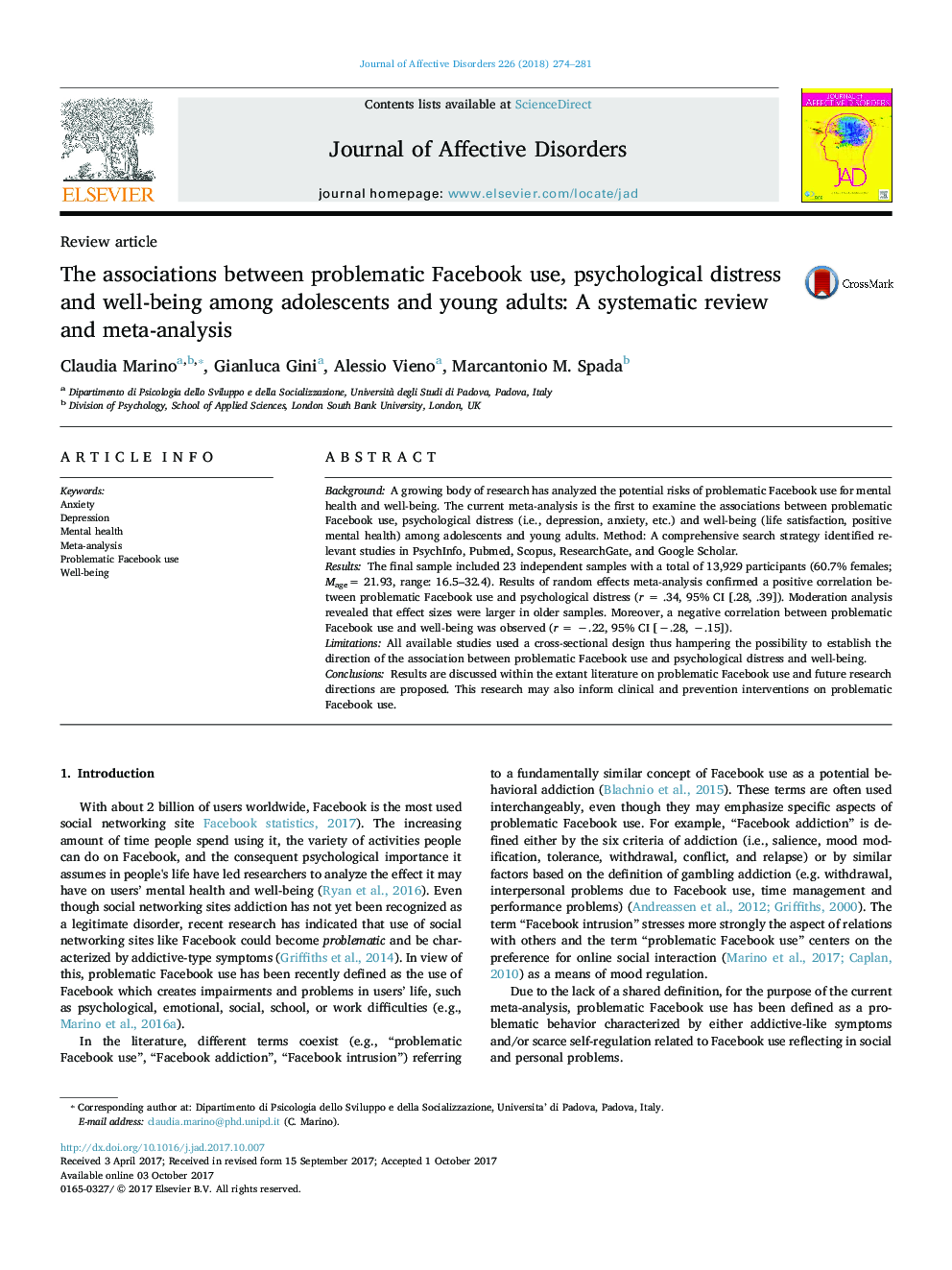| Article ID | Journal | Published Year | Pages | File Type |
|---|---|---|---|---|
| 5721664 | Journal of Affective Disorders | 2018 | 8 Pages |
â¢Problematic Facebook Use has been considered a potential mental health problem.â¢PFU is positively associated with psychological distress especially in older samples.â¢PFU is negatively linked to well-being.
BackgroundA growing body of research has analyzed the potential risks of problematic Facebook use for mental health and well-being. The current meta-analysis is the first to examine the associations between problematic Facebook use, psychological distress (i.e., depression, anxiety, etc.) and well-being (life satisfaction, positive mental health) among adolescents and young adults. Method: A comprehensive search strategy identified relevant studies in PsychInfo, Pubmed, Scopus, ResearchGate, and Google Scholar.ResultsThe final sample included 23 independent samples with a total of 13,929 participants (60.7% females; Mage= 21.93, range: 16.5-32.4). Results of random effects meta-analysis confirmed a positive correlation between problematic Facebook use and psychological distress (r = .34, 95% CI [.28, .39]). Moderation analysis revealed that effect sizes were larger in older samples. Moreover, a negative correlation between problematic Facebook use and well-being was observed (r = â.22, 95% CI [â.28, â.15]).LimitationsAll available studies used a cross-sectional design thus hampering the possibility to establish the direction of the association between problematic Facebook use and psychological distress and well-being.ConclusionsResults are discussed within the extant literature on problematic Facebook use and future research directions are proposed. This research may also inform clinical and prevention interventions on problematic Facebook use.
